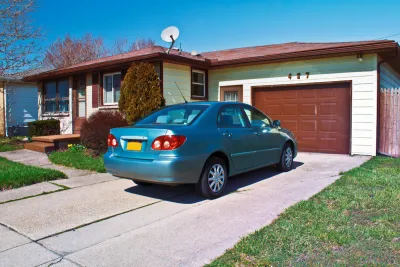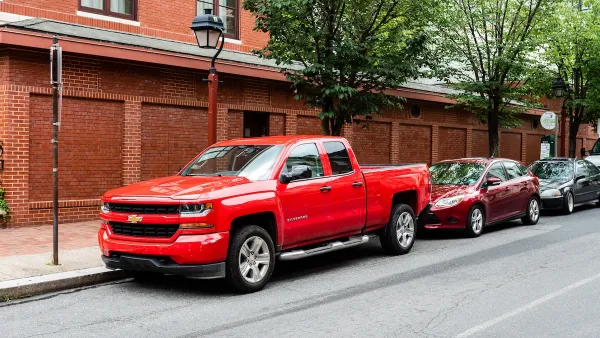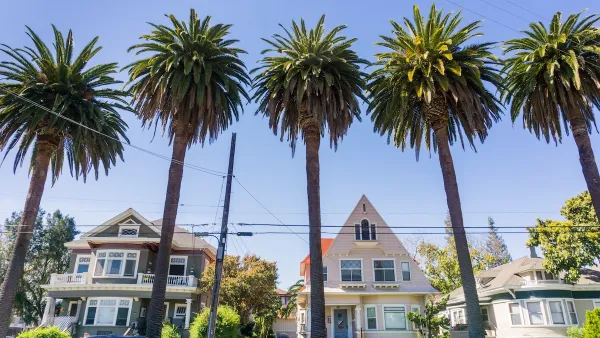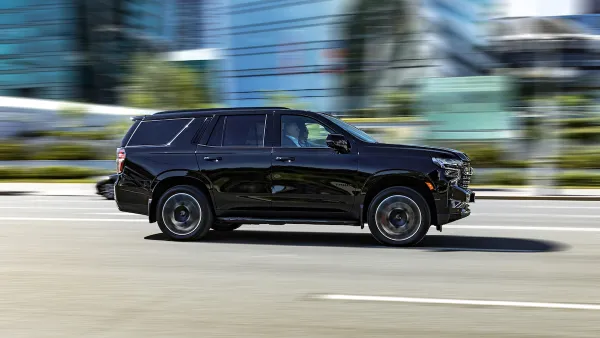How lower-income consumers are being priced out of accessible options.

Looking at recent trends in vehicle prices, Addison Del Mastro, in an article for Discourse, writes that “Much like the starter home, the starter car is on its way out.”
Del Mastro argues that “car prices are not just being driven up by scarcity, labor issues or other economic disruptions. They’re also escalating because of the removal of smaller—and less profitable—cars from manufacturers’ product lines.” In other words, Americans have less and less access to small, efficient cars, even if they want them. “For example, the Chevrolet Sonic and the Toyota Yaris were discontinued in 2020; the Hyundai Accent was discontinued in 2022; the Ford Fiesta, and now the Mitsubishi Mirage, have been discontinued in 2023.”
Comparing this decrease in access to small, affordable cars to the same phenomenon in the housing market, where affordable ‘starter homes’ are now nearly extinct, Del Mastro writes that “There’s no single explanation for this. Is it corporate greed or the unforeseen consequences of regulation? Maybe both.”
In the case of housing, zoning and other regulations have effectively criminalized some of the most affordable forms of housing such as apartments above businesses or accessory dwelling units (ADUs). “This is not exactly analogous to the starter car, but the result is the same. Automakers make more money selling larger cars, and regulations—safety regulations, but particularly the loophole by which SUVs escape higher fuel efficiency standards—skew the incentives even further toward large cars.”
While living in a walkable city with an excellent transit system may be a goal for many people, current conditions mean some people still need to drive. “[L]ife is hard, and there’s no reason for red tape and poorly crafted regulations to make it harder.” In Del Mastro’s opinion, “‘Deregulation’ is a dry and unsatisfying way of putting the answer, but it is nonetheless true that if we made it easier to deliver these bottom-rung products to market—by reforming zoning, for instance, or closing the SUV fuel-efficiency loophole—more people would do just that.”
FULL STORY: ‘Starter Cars’ Go the Way of Starter Homes

National Parks Layoffs Will Cause Communities to Lose Billions
Thousands of essential park workers were laid off this week, just before the busy spring break season.

Retro-silient?: America’s First “Eco-burb,” The Woodlands Turns 50
A master-planned community north of Houston offers lessons on green infrastructure and resilient design, but falls short of its founder’s lofty affordability and walkability goals.

Delivering for America Plan Will Downgrade Mail Service in at Least 49.5 Percent of Zip Codes
Republican and Democrat lawmakers criticize the plan for its disproportionate negative impact on rural communities.

Test News Post 1
This is a summary

Test News Headline 46
Test for the image on the front page.

Balancing Bombs and Butterflies: How the National Guard Protects a Rare Species
The National Guard at Fort Indiantown Gap uses GIS technology and land management strategies to balance military training with conservation efforts, ensuring the survival of the rare eastern regal fritillary butterfly.
Urban Design for Planners 1: Software Tools
This six-course series explores essential urban design concepts using open source software and equips planners with the tools they need to participate fully in the urban design process.
Planning for Universal Design
Learn the tools for implementing Universal Design in planning regulations.
EMC Planning Group, Inc.
Planetizen
Planetizen
Mpact (formerly Rail~Volution)
Great Falls Development Authority, Inc.
HUDs Office of Policy Development and Research
NYU Wagner Graduate School of Public Service





























